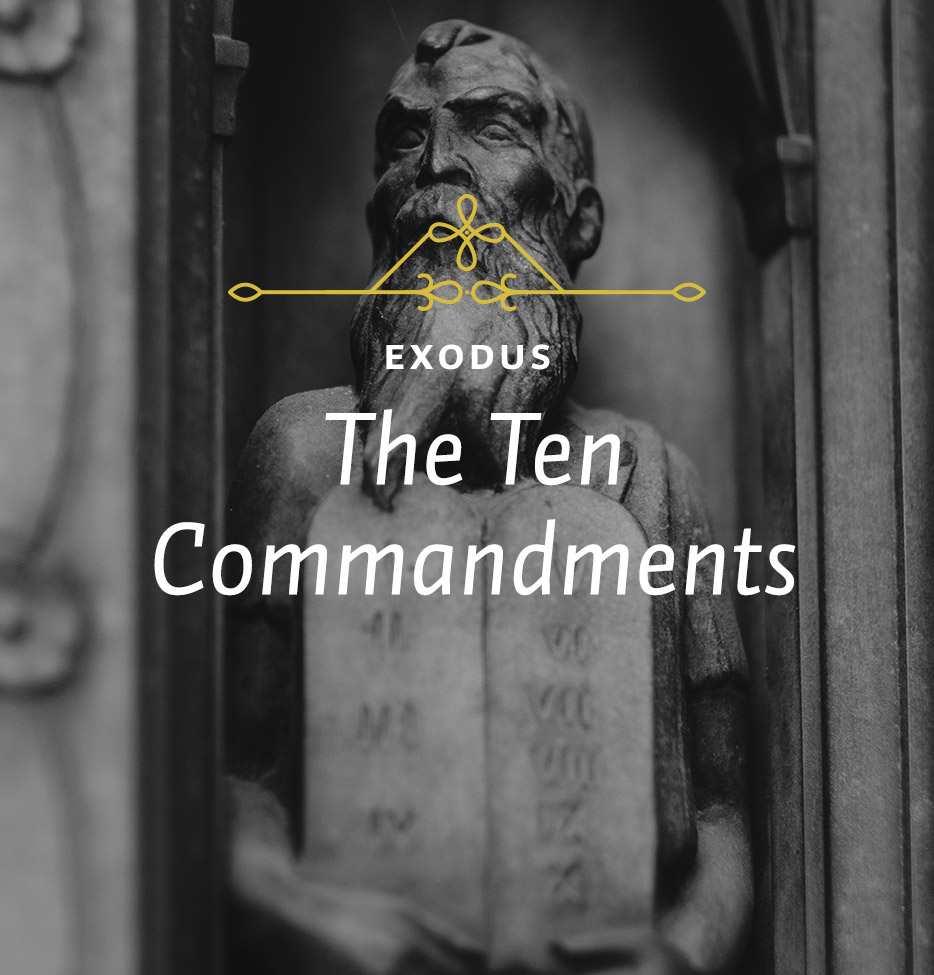We have come to a very important division in the book of Exodus. Roughly divided, chapters 1-18 deal with the exodus itself, from which the book gets its name; and then the second half, chapters 19-40, deals with the giving of the law. We think of Moses as the great emancipator, but he was also the lawgiver by the grace of God. And this matter of giving the law was very necessary if the Jewish people were to be formed into a true nation. Deliverance from slavery is one thing, but freedom without law leads to license—and license is only another form of slavery. So, what we find in the second half of the book is the work of God through Moses in providing the people with the law code.
The second half of the book falls into three parts because there are three different kinds of law. The first type of law is the moral law. It’s embodied in the Ten Commandments, and that is what is presented to us in chapters 19-20. The second kind of law is the civil law, which we find in chapters 21-24 (known as the book of the covenant). This has to do with government, that is, how a nation is to be operated and run. The third set of laws is the ceremonial law (chapter 25-40, but particularly chapters 25-31). This is the religious law, and includes items such as how the tabernacle was to be constructed, and how various ceremonies were to take place. This part of the law is elaborated in Leviticus, especially concerning the role of the priests who served in the tabernacle. Our focus in this week’s study will be on the moral law.
It’s impossible to overstate the importance of this moral code. It’s not that the Ten Commandments are in all respects unique to Judaism or the Old Testament. Rather, its importance is because the Ten Commandments flow from the moral character of God, and God has stamped His character upon the human heart.
Most cultures know that it is right for human beings to seek out, worship and praise their Creator. They don’t know who He is, and to the extent that they are aware of the true God, they suppress that truth as Paul describes in Romans 1. Nevertheless, that sense of what is right and wrong resides, in a fallen state, in the hearts of men and women. Most people know that we are supposed to honor our father and mother, and that we are not to murder, commit adultery, steal, give false testimony, or covet.
The Ten Commandments stand out from other moral codes because here, in the shortest space and in the most brilliant and flawless language, all of this is put together in one place. Moses didn’t get these laws from the cultures around him, though he may well have been aware of some of these laws that existed in Egypt, for example in the well-known Code of Hammurabi, which the Egyptians knew and from which they borrowed. But he got these laws from God, and they express in the purest possible form the kind of things which all of us should know.
In recent years there has been a great deal of study of ancient law codes. Scholars have pointed out that there are two main types of law in the ancient world. They express themselves in the form of a treaty. The first of these two forms is called a parity treaty. It is a treaty between equals, for example, between two kings. No one is claiming sovereignty over the other but they agree to live together as neighbors and to respect one another’s territory. And as an expression of their agreement, they sign a covenant. Most of our contracts are like that.
The second type of treaty is called a suzerainty treaty, and this has to do with a sovereign and his subjects. This is the kind of covenant that a feudal lord imposes upon his subjects. Most of the ancient kings were feudal lords in this sense and these law codes that they promulgated in the form of treaties or covenants were passed to the people in this form. Usually there were about six parts. First was a preface, which was then followed, secondly, by a statement in which the ruler introduces himself. Third, there is a historical section where he rehearses what he has done on behalf of the vassals. Fourth, there are the obligations that he lays upon his subjects. Fifth, he lists the blessings that will follow if they obey him. And then lastly, he lists the curses or the judgments that are going to come if they don’t.
The law that we have in Exodus 20 is somewhat like that. It begins with God introducing Himself and briefly explaining what He had done for the people: “I am the LORD your God who brought you out of the land of Egypt.” And then He begins to lay upon them the obligations that that relationship entails. Now at this point He does not lay out the judgments or the blessings in every case. That’s spelled out in far greater detail in Deuteronomy. What this tells us is that when God gives us the Ten Commandments, it’s not something we are free to accept or not accept as God’s equals. God is not our equal; we are not like Him. There is no one like God. God is a Sovereign above all sovereigns. He’s certainly your Sovereign and mine. God says that because He has created us—and if you are a Christian, because He has redeemed you from the hand of the enemy and saved you from your sin—this is the way you should live.






